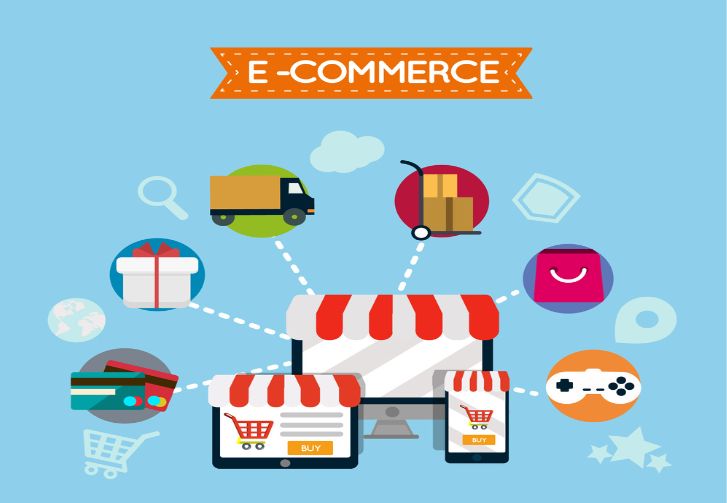
Do you know how to start a successful e-commerce business? What are some of the top practices one will need to succeed in online store building? In this blog, we have discussed all the things you need to know to start an e-commerce business. Enterprenuous with thriving ideas wants to come up with a platform and that is e-commerce store building.
In today’s digital age, starting an e-commerce business presents an enticing opportunity for aspiring entrepreneurs. With the global reach of the internet and the increasing popularity of online shopping, the potential to build a successful e-commerce venture has never been greater. This blog will serve as your comprehensive guide, walking you through the essential steps to launch your own e-commerce business from scratch. Let’s dive in!
Implement Top 10 Practices to Start Thriving E-commerce Business
Here are the top 10 Practices one needs to implement to start a thriving e-commerce business. Check out what are some of the top practices one has to implement to start building a business they are looking for.
Define Your Niche and Market Research
The first crucial step in starting an e-commerce business is to identify your niche. Research and identify products or services that align with your interests, and expertise, and have a demand in the market. You must study in deep to know your market audience including the competitors and further what challenges you may face for the same. Knowing your niche will help you tailor your offerings and marketing strategies more effectively.
Create a Business Plan
A well-thought-out business plan is the foundation of a successful e-commerce venture. Outline your business objectives, financial projections, marketing strategies, and operational plans. Define your brand identity, value proposition, and the unique selling points that set you apart from competitors. Having a clear roadmap will help you stay focused and make informed decisions as you grow.
Choose the Right E-commerce Platform
Selecting the right e-commerce platform is crucial for the smooth functioning of your online store. There are several e-commerce store-building platforms you can embark on. It includes Magento, BigCommerce, WooCommerce, and Shopify. What fits your e-commerce store building choose and get to have the options like customization option, scalability, payment method, and how you will be supported for your e-commerce store build. Choose a platform that aligns with your business needs and budget.
Source Your Products or Services
Decide whether you’ll sell your products or opt for dropshipping, where you partner with suppliers who handle inventory and shipping. If you’re selling physical products, establish relationships with reliable suppliers. Ensure the quality and reliability of your products, as customer satisfaction is paramount in e-commerce.
Build Your E-commerce Website
Your e-commerce website is your virtual storefront. Design an appealing, user-friendly, and mobile-responsive website that reflects your brand identity. You must focus on some of the most important factors like adding high-quality product images, adding descriptions that describe your business, and a system to navigate for the customers. Implement secure payment gateways to build trust with customers.
Focus on Search Engine Optimization (SEO)
There are millions of websites including yours thus optimizing your website for better visibility is peculiar. Go for the SEO practices to optimize your website and improve its visibility. Use relevant keywords, meta tags, and product descriptions to enhance your website’s ranking on search engine results pages. Create engaging and shareable content, such as blogs and product guides, to increase your website’s authority.
Implement Marketing Strategies
Develop a robust marketing plan to promote your e-commerce business. Utilize social media marketing, email marketing, influencer partnerships, and pay-per-click (PPC) advertising to drive traffic to your website. Offer discounts, loyalty programs, and referral incentives to attract and retain customers.
Provide Excellent Customer Service
Exceptional customer service is essential for building brand loyalty and garnering positive reviews. Respond promptly to customer inquiries and complaints. Implement live chat or chatbot support to assist customers in real-time. Personalize the shopping experience and consider offering a hassle-free return policy to build trust.
Monitor Analytics and Make Data-Driven Decisions
Track and analyze website traffic, sales, and customer behavior using tools like Google Analytics. Use this data to identify trends, understand customer preferences, and optimize your marketing strategies. Continuously adapt and improve based on the insights gained from the data.
Stay Compliant with Legal and Security Requirements
Ensure your e-commerce business complies with all legal requirements, such as business registrations, taxes, and data protection regulations. Implement security measures to safeguard customer information and payment details, building trust and credibility among your customer base.
Additional Information for Ecommerce
Here is some additional information to help you to be in e-commerce businesses. Check what will be the future of e-commerce and what businesses need to do. We have added the answer you need to know.
The Future of Ecommerce
As we look ahead, the future of e-commerce seems incredibly promising. With the continued growth of technology, the rise of augmented reality (AR) and virtual reality (VR) in online shopping experiences is likely to become more prevalent. Customers will be able to virtually try on clothes, visualize furniture in their homes, and explore products in immersive ways.
Additionally, the integration of voice commerce through smart speakers and virtual assistants will further streamline the shopping process, making it even more convenient for consumers to make purchases.
Mobile Commerce is the next frontier
As smartphones became an indispensable part of our lives, mobile commerce (m-commerce) emerged as the new frontier for ecommerce businesses. With mobile apps and responsive websites, consumers could shop on the go, driving a significant portion of online sales. ecommerce companies focused on optimizing their platforms for mobile devices, enhancing user experiences, and streamlining the checkout process.
Conclusion
Starting an ecommerce business requires careful planning, dedication, and a customer-centric approach. By defining your niche, creating a solid business plan, and leveraging the power of digital marketing, you can turn your ecommerce venture into a thriving success. Embrace innovation, stay adaptable, and provide top-notch customer experiences to stand out in the competitive ecommerce landscape. With the right strategy and persistence, your online business can reach new heights of success in the digital realm.








